
 Flash News
Flash News
Argument with hard objects at a residence in Lundë, one person is suspected of being injured
Pope Francis' funeral, 4,000 police officers will oversee security at the Vatican tomorrow
Video/ Disappointed miner burns his PS card
Accident in "Plepat e Kardhiqit", German hits pedestrian in Gjirokastra
He raped an OSHEE employee, a 38-year-old man is wanted in Tirana
Toxic Waste Released from Durrës in Thailand, Serious Violation of National and International Laws

By Eduard Halimi
Two ships loaded with dangerous toxic waste left from the port of Durrës for Thailand are a worrying development that has raised big questions about possible violations of national and international laws. According to a recent report by Bloomberg, this move may constitute a direct violation of international laws, national environmental protection laws, and transportation and safety regulations. The ships, owned by a giant trading company with at least 100-140 containers, are still at sea. One of them turned off the signal. The latest news shows that Thailand has identified them and ordered them back to their country of origin. Ship owners are known, container owners not yet, but certainly not air loaded. They were loaded at the eastern quay of the port of Durrës, first in bulk and then in containers. Those who brought the refugee near Durrës should have names, just like those who packed it into containers and loaded it onto the ship.
Violations of International Law: Basel Convention in Focus
Albania, as a signatory country of the Basel Convention, has clear obligations not to allow the export of hazardous waste to countries that are not equipped to handle it safely. If the waste being transported to Thailand is classified as hazardous, this constitutes a direct violation of this convention. Thailand has decided to return them to their country of origin, that is to Albania, and the crisis will come here again, posing a serious threat to the environment and people.
According to Article 6 of the Basel Convention, ratified by law no. 8216, dated 13.5.1997, Albania had the obligation to notify and request the producer or exporter to notify in writing, through the Directorate of Circulating Economy at the relevant ministry, the competent authority of the interested countries about any proposed cross-border movement of waste hazardous and other waste. Only after notifying the country of import and the country of transit, and obtaining the consent of these countries, could the transportation of hazardous waste continue and the Albanian port authorities continue with the process.
In accordance with the Convention, Albania (state authorities) should not have allowed the producer or exporter to start cross-border movement until it had received written confirmation that the notifier had received the written consent of the importing state, and that the notifier had received from the state of import confirmation on the existence of a contract between the exporter and the disposer, specifying the complete environmental treatment of the waste in question.
Sipas nenit 9 të Konventës, në kushtet kur mungon njoftimi i shtetit të tranzitit dhe shtetit të importit, si dhe mungon miratimi i tyre i shkruar, ndodhemi përballë trafikut ilegal të mbetjeve. Dhe meqë përgjegjësia është e shtetit shqiptar, shteti ynë duhet të japë garanci që mbetjet në fjalë janë marrë mbrapsht prej eksportuesit ose prodhuesit, ose nëse është e nevojshme prej atij vetë në Shqipëri, përndryshe, mbetjet e rrezikshme duhet të asgjësohen në përputhje me klauzolat e Konventës. Deri tani ende nuk dihen përgjegjësitë e plota, por dyshimi i fortë për trafik ilegal sipas nenit 9 është ekzistencial.
Ligjet Kombëtare: Një Përballje me Krimet e Mjedisit dhe Shëndetit Publik
Nëse mbetjet përmbajnë substanca të dëmshme, ashtu siç raportohet gjerësisht, eksporti i tyre mund të përbëjë një shkelje të rëndë të ligjit shqiptar për mbrojtjen e mjedisit. Ky ligj kërkon që çdo lëvizje e mbetjeve toksike të bëhet vetëm pas një vlerësimi të plotë të ndikimit në mjedis dhe me miratimin e agjencive përkatëse. Për më tepër, nëse dokumentacioni që shoqëron këto mbetje është manipuluar, kjo mund të përbëjë një akt të rëndë falsifikimi dhe mashtrimi. Nëse është e vërtetë se Tajlanda vendosi t’i kthejë mbrapsht në vendin e origjinës, pra në Shqipëri, një krim edhe më i madh kërcënon mjedisin dhe shëndetin publik këtu. Dhe këtu bëhet fjalë për shëndetin publik; bëhet fjalë për të gjithë fëmijët e të gjithëve. Në përballje me këtë katastrofë ekologjike që po vjen, nuk duhet të heshtet, as nga mediat pro-qeveritare dhe as nga ato kundër, pasi bëhet fjalë për jetën e fëmijëve tanë dhe shëndetin publik.
Krimet Ekonomike dhe Korrupsioni: Një Qark i Errët
Një tjetër aspekt i errët i kësaj çështjeje mund të jetë përfshirja e krimeve ekonomike, si pastrimi i parave, ku mbetjet toksike përdoren për të fshehur origjinën e fondeve të paligjshme. Për më tepër, veçanërisht në kushtet kur shteti shqiptar, sipas Bloomberg, nuk ka dijeni për këtë ngarkesë të rrezikshme, ngre edhe më shumë shqetësime në drejtim të mundësisë së përfshirjes së grupeve kriminale në këtë skemë. Ende mbahet sekret pronari i 100-140 kontejnerëve, vlera e deklaruar kur u ngarkuan, kush dha lejen, kush firmosi, kush sigloi, kush bëri deklaratën doganore, kush i ngarkoi, kush fiku sinjalin dhe ku ndodhen tani. Këto aspekte krijojnë një qark të errët. Trafiku ilegal i mbetjeve, siç tregon neni 9 i Konventës, është një krim i rëndë.
Rreziku për të Drejtat e Njeriut dhe Sigurinë Publike
The transportation of toxic waste is not only a legal issue, but also a serious threat to public health and safety. Workers who are involved in loading, transporting and unloading these wastes are exposed to major health risks. Those who have loaded onto trucks have moved from shelters to containers and so on. Another important issue is how the waste will be treated after arriving in Albania. If the waste is not treated properly, the risk to local communities, or if it is returned here, the consequences for the communities will be catastrophic.
Criminal Liability and Civil Actions: Liability of Companies and the State
These legal and ethical violations can lead to serious criminal prosecution, not only in Albania, but also internationally. International organizations, as well as other countries affected by these actions, may seek criminal prosecution of those responsible for these actions.
At the international level, in accordance with the Basel Convention, the transboundary movement of hazardous waste or other waste without the notification of the countries concerned, as well as without their approval, is prohibited and considered illegal waste traffic.
At the national level, those responsible would obviously include the port authority, which has responsibility for control, monitoring, occupational health and safety, notification and coordination. Customs authorities, as well, regarding inspection, verification, securing documentation, following protocols and obviously also the ministerial level, since the issuance of permits, their monitoring and implementation, assessment of the impact on the environment, etc. Everyone, or each one according to his role, should be included as a suspect in at least some crimes as provided for in article 201/b and 282/a of the Criminal Code. Penalties for such offenses are severe, if proven to have been committed.
Likewise, state officials charged with responsibility according to the Basel Convention and Albanian environmental legislation may be suspected of the criminal offense of "Abuse of Duty".
In addition to the criminal prosecution that must be exercised by the prosecuting body, communities affected by possible environmental pollution can file civil lawsuits against the companies and the government for the damages caused.
cONcluSiON
The transport of toxic waste from Durrës to Thailand is a serious issue that raises serious concerns about violations of national and international laws. The failure of the monitoring system has led to serious legal violations and danger to the environment and public health. It is essential that investigations are carried out comprehensively, thoroughly, quickly and efficiently to determine whether there have been violations and who is responsible for them.
Latest news




The young man who was injured today in Farka is the son of the former DP MP
2025-04-25 21:52:26

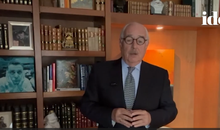
Andres Pastrana: CDI stands strongly by the DP, has shown determination
2025-04-25 20:57:42
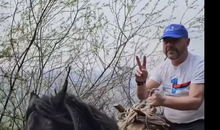





Berisha in Tirana: Benefits and subsidies for those returning to Albania
2025-04-25 19:32:44
Berisha: Albanians spend 4 times more on medicine than on bread
2025-04-25 19:19:58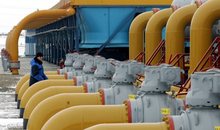
Russia and Iran strengthen ties with gas deal
2025-04-25 19:02:46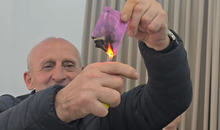
Video/ Disappointed miner burns his PS card
2025-04-25 18:45:02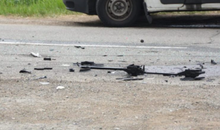
Accident in "Plepat e Kardhiqit", German hits pedestrian in Gjirokastra
2025-04-25 18:36:02
Begaj and Osmani pay homage near the body of Pope Francis in the Vatican
2025-04-25 18:17:28
He raped an OSHEE employee, a 38-year-old man is wanted in Tirana
2025-04-25 18:04:30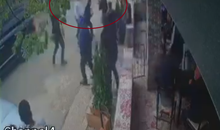
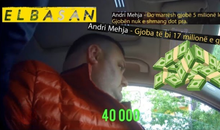

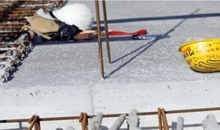
62-year-old man dies after falling from height while working in Golem
2025-04-25 17:15:29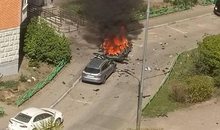
Russian general killed in Moscow bomb blast
2025-04-25 16:58:28
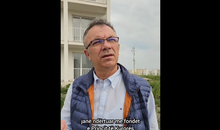

Tirana/ Drunk 22-year-old breaks equipment, father and son punch her
2025-04-25 16:20:12

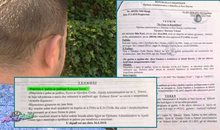

Meta: Pension increases will begin immediately with the vote for No. 1
2025-04-25 15:29:47
Trump: Crimea will stay with Russia, Zelenskyy knows this
2025-04-25 15:20:27
Silent deforestation from illegal logging, fires, mining and neglect
2025-04-25 15:11:12
New Moon challenges, opportunities for these two signs
2025-04-25 15:01:38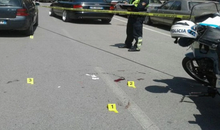
Accident on the Gjirokastër-Tepelena axis, German driver hits 38-year-old woman
2025-04-25 14:49:59
Improve eye health, 10 foods you should definitely add to your daily meals
2025-04-25 14:41:31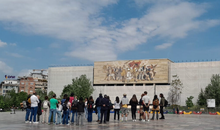
Tourism falters in March, foreigners fall by 2.7 percent
2025-04-25 14:31:59
Fiscal Peace in Albania: A Dangerous Deal with the Past
2025-04-25 14:24:48
Selling cannabis at Kombinat, 25-year-old arrested
2025-04-25 14:19:32

Rama's show with Vlora airport, will it end up abandoned like Kukësi?
2025-04-25 14:01:06

Arrested for stalking Dibra hospital director, house arrest for Irini Shehu
2025-04-25 13:41:48
Incidenti në Dibër, Berisha: Provokacion i ulët i bixhozgjiut Blendi Klosi
2025-04-25 13:32:40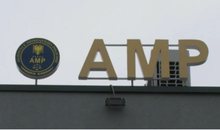
Police officer arrested for driving ambulance while drunk in Vlora
2025-04-25 13:27:02
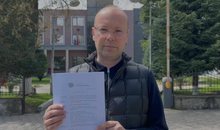
DP denounces the mayor of Maliq, Gëzim Topçiu, to SPAK
2025-04-25 12:55:50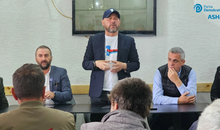

Woman jumps from the eighth floor of the building in "Don Bosko"
2025-04-25 12:34:23

DP's program for medicine/ Alimehmeti: Healthcare needs urgent reforms
2025-04-25 12:20:11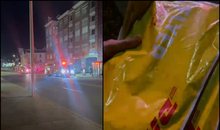



Eni Vasili elected General Director of RTSH
2025-04-25 11:40:27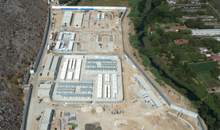

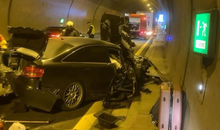
Serious accident in the Kalimash Tunnel, suspected victims
2025-04-25 11:05:23
Gjimnazisti vret shokun dhe plagos tre të tjerë
2025-04-25 10:59:57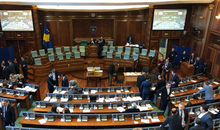
Kosovo Assembly constitution fails again, VV candidate rejected
2025-04-25 10:42:29
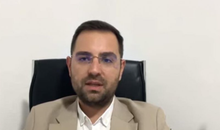





Begaj leaves for Italy, will attend Pope Francis' funeral
2025-04-25 09:29:14
Farewell to Pope Francis, over 128 thousand believers in homage in 48 hours
2025-04-25 09:21:28
Asphalt campaign for votes in the villages of Mati
2025-04-25 08:59:25

Foreign exchange/ How much foreign currencies are bought and sold today
2025-04-25 08:40:05
Albania needs 20 years to be classified in the group of high-income countries
2025-04-25 08:35:33
Horoscope, what do the stars have in store for you today?
2025-04-25 08:21:37
What is the weather expected to be like today, the forecast for this Friday
2025-04-25 08:09:26
Posta e mëngjesit/ Me 2 rreshta: Çfarë pati rëndësi dje në Shqipëri
2025-04-25 07:53:43
"Rama waves his passport in vain", Noka: Our strong point is the program,
2025-04-24 22:56:22


Kryemadhi: I like going to SPAK, I make jokes
2025-04-24 22:21:02

Tirana/ The young man is brutally raped and taken hostage
2025-04-24 22:03:32



DW: Thousands of people at the "March of the Living" at Auschwitz
2025-04-24 21:19:06

A party that has always thought about Albania...
2025-04-24 20:52:51
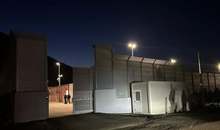
Gjadri Camps, ANSA: EC Committee for the Prevention of Torture soon in Albania
2025-04-24 20:36:39

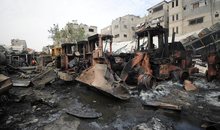
39 killed in latest Israeli attacks on Gaza
2025-04-24 19:57:02

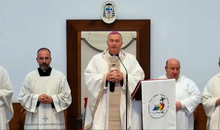
US and OSCE representatives attend mass for Pope Francis at St. Paul's Cathedral
2025-04-24 19:08:45

The world's youngest billionaire! Who is Lucy Guo, founder of ScaleAI?
2025-04-24 18:53:51

